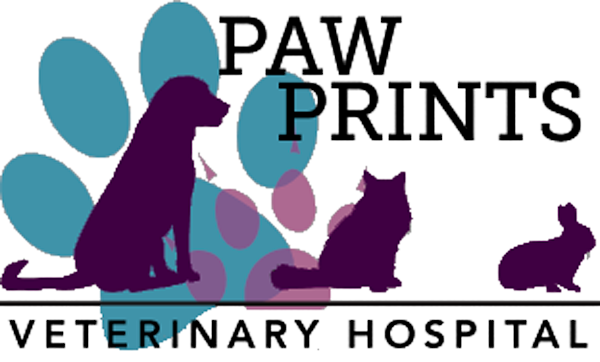
Surgery
At Paw Prints Veterinary Hospital, we pride ourselves in the quality of care given to our patients before, during and after surgery. Any surgical procedure, whether routine or complex, can bring much anxiety to you and your pet.
SURGERY FAQ
At Paw Prints Veterinary Hospital, we pride ourselves in the quality of care given to our patients before, during and after surgery. Any surgical procedure, whether routine or complex, can bring much anxiety to you and your pet.
Here are some answers to our most commonly asked questions. Please feel free to contact our office if the information you are looking for is not covered below.
THE NIGHT BEFORE SURGERY
The night before any anesthetic procedure, your pet should be fasted from food, snacks and water after 10 p.m. (If your pet is a rabbit, do not restrict feeding.) If your pet is on any medications, they should be given as usual, unless otherwise directed by your veterinarian. If you have any questions about whether or not to give your pet their medication, please call.
THE DAY OF SURGERY
We ask that you bring your pet into the hospital between 8:00 and 8:30 a.m. If you are unable to bring your pet in during the morning period, you may board your pet the night before the procedure (boarding fees apply).
The entire check.in process typically takes around 10.15 minutes. You will be required to fill out surgery paper work. The surgery paper work will have some questions for you to answer, an anesthesia release form for you to sign and a place to put a phone number where you can be reached throughout the day of your pet’s procedure.
The form also explains and allows you to choose pre.anesthetic blood work with your pet’s anesthetic procedure, microchip implantation and intravenous catheterization. These options are not included in the base price of the procedure that you may have been quoted.
We have often been asked why we offer pre.anesthetic blood work as an option and not make it mandatory, as it aids in increasing the safety of the procedure. The answer is unfortunately economics. The blood work has an added cost that, if included in the cost of the surgery, would increase the base price of all of our procedures. That would make some very important and necessary surgical procedures not affordable to everyone. However, we feel that pre.anesthetic testing is very important and falls into the high standard of pet care that we want to offer all of our clients.
PRE-ANESTHETIC BLOOD WORK AND CBC
Your pet’s kidney and liver are the primary organs used to process and eliminate anesthesia from your pet’s system. This blood work evaluates your pet’s liver and kidney function to confirm that they are working properly. This profile may also reveal hidden health conditions that may put your pet at risk with anesthesia.
A CBC is another blood test done prior to surgery that will check red blood cell, white blood cell and platelet counts. These tests can uncover things like anemia, early infection, or blood clotting problems.
If any of these conditions are present, your pet’s surgeon may recommend that surgery be delayed due to the risks of serious surgical complications.
POST SURGICAL INSTRUCTIONS
We ask that you call our office between 2:00 and 3:00 pm to see when your pet will be ready to go home. If we are sending home any medications such as pain medications or antibiotics, the technician will go over the specific dosing instructions and when to start the medications.
If your pet received IV fluids, the catheter will be removed at the time of discharge and a bandage placed to prevent bleeding. This bandage needs to be removed one hour after your pet leaves the hospital.
If your pet is prone to licking or chewing, you may want to purchase an Elizabethan collar. This will prevent the possibility of opening the incision and the need for further surgeries. This collar must be left on at all times unless your pet is under your direct supervision.
After surgery, we ask that you only leash walk your dog for approximately one week. Please do not take your pet on longs walks, play ball or Frisbee or do any other vigerous activity. This will allow for the proper healing of his/her incision.
On the evening of your pet’s surgery, you can offer them a small amount of food and water. Because of the after.effects of the anesthesia, your pet’s stomach may be upset and he/she may vomit. Please feel free to call if you this occurs and you are concerned.
If your pet had a dental cleaning and/or any teeth extracted, please feed canned food or soften dry food with warm water.
All of the external sutures that are used will dissolve. However, it can take quite a few weeks for this to happen. If you would prefer to have the sutures removed, please set up an appointment 10-14 days from the date of the surgery. There is no fee for suture removal.
If your pet has staples, they will need to be removed in 10-14 days from the date of the surgery. If you have any other questions regarding your pet’s procedure, please call and talk to one of our receptionists prior to the surgery date or ask your technician at the time of the surgery.
Please feel free to contact our office at any time if you have any questions or concerns. Your pet’s comfort and well.being are our top priority.
